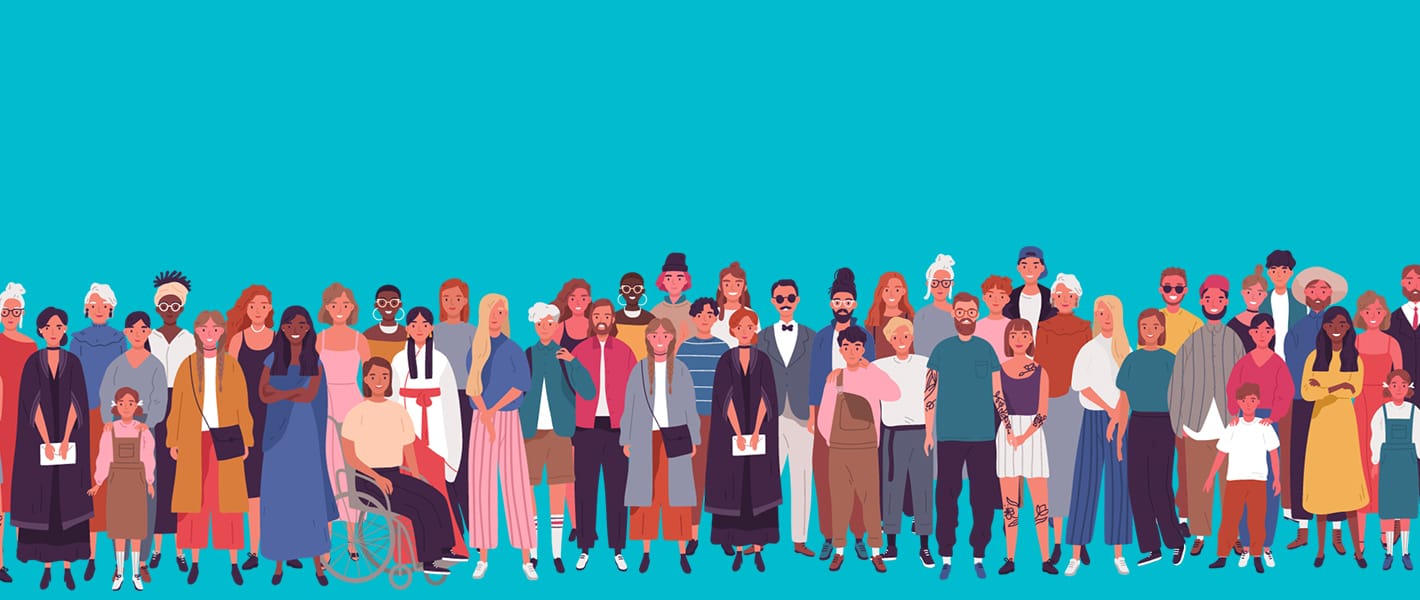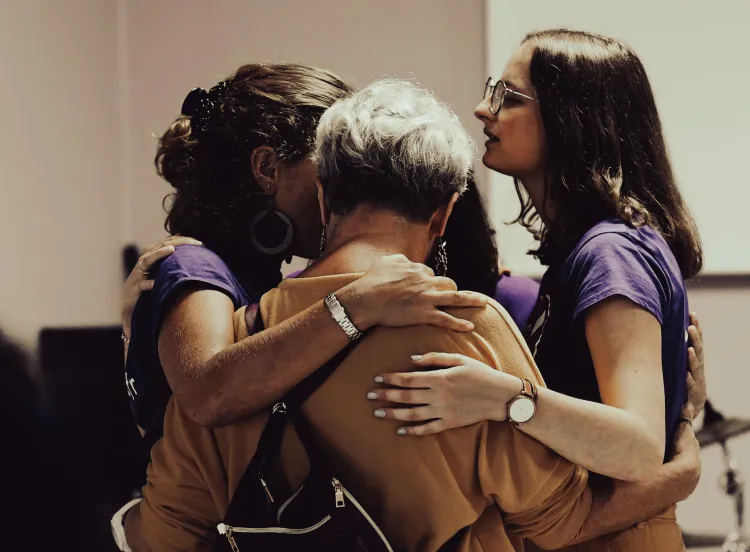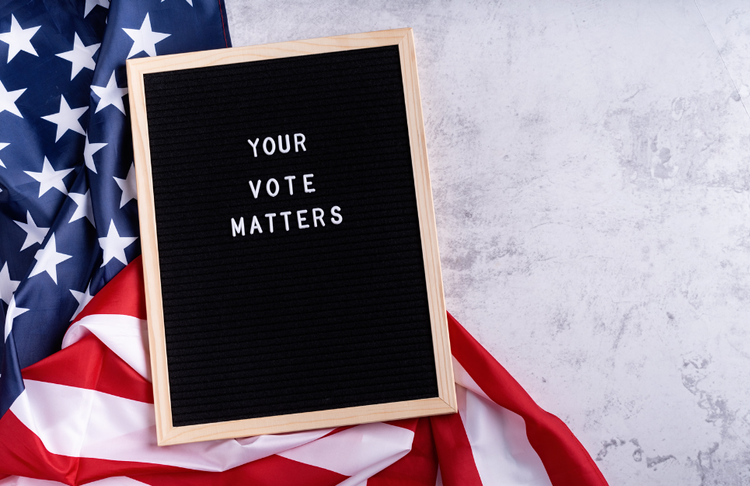Supporting Survivors

Once you have the information and resources to recognize domestic sexual violence, you can use the tools below to prepare yourself to help someone get the support they need and deserve and also to prevent these crimes going forward.
Knowing what to say to someone who may be experiencing domestic or sexual violence can be overwhelming and downright scary. Though it may be tough, you can still be of some help.
The most important thing to remember is that you don’t need to be an expert — you need to be a friend.
In addition to the info below, the national hotlines offer free, confidential services to anyone who has been affected by domestic violence and sexual assault, including friends and families.
How To Support Someone in the Moment
Listen Without Judgement
If someone opens up to you about experiencing abuse, it might be the first time they've shared. Just listening without judgment can mean the world. If they need support, suggest contacting a national hotline or professional counselor and offer to be there as they make the call. While you may have a strong reaction, remember to focus on their words. You may also need support yourself, and this isn't unusual. Any Hotline or local organization can help you - remember, you are not alone.
Tip→ Sometimes, you don’t need words (or at least, many words) to be there for someone. Many people share that being able to tell their story to someone else lessens the weight of isolation, secrecy, and self-blame. Remember, listening alone can make a huge difference in someone’s life. – via the Joyful Heart Foundation’s 6 Steps to Supporting a Survivor
Let them know that you believe them.
Believing a survivor can be life-changing. They might blame themselves, but your reassurance that it's not their fault can make a huge difference. Letting them know you believe them helps them feel supported and encourages them to seek the help they deserve.
It can be helpful to communicate the following, gently, and repeatedly:
- “Nothing you did or could have done differently makes this your fault.”
- “The responsibility is on the person who hurt you.”
- “No one ever has the right to hurt you.”
- “I promise, you didn’t ask for this.”
- “I know that it can feel like you did something wrong, but you didn’t.”
- “It doesn’t matter if you did or didn’t _______. No one asks to be hurt in this way.
Tip→ No one deserves abuse or violence. Statements or questions that focus on what a victim did or didn’t do – unintentionally or not – signal that the survivor is responsible. The only person to blame for violence and abuse is the perpetrator. Although this sounds like a simple idea, educating yourself about the common myths about domestic and sexual violence can help you offer informed, compassionate support and make a huge difference.
Ask what more you can do to help.
Ask what more you can do to help and know where to point someone for more help. You can also contact a national hotline for free, confidential help and/or referrals to local advocacy centers offering additional counseling or assistance.
Support their decisions
It is critical for survivors to regain their sense of control and agency. Support their decisions instead of pushing them to take actions they may not feel comfortable with (such as reporting to the police or seeking counseling).
If a survivor wants to talk, try to be an open listener. If they prefer not to talk about the assault, try to be supportive in other ways, such as letting them know that you care about them and are willing to listen later.
Tip→ This point can be tough. It can be quite tempting to try to “fix” things or solve the problem immediately. By listening, allowing a survivor to make decisions for her/himself, and assuring them that their decisions are supported, you can make a huge impact on that survivor’s life. – via Rape Victim Advocates’ Effects Of Sexual Violence
Take care of yourself too.
Make sure you seek support and help if you are feeling overwhelmed.
Domestic violence and sexual assault can be extremely difficult and painful experiences for the families and friends of victims/survivors. Common feelings of those supporting victims/survivors include helplessness, frustration, anger, and guilt. It can be helpful to talk with someone. Confidential support is available.
Is it different when the victim/survivor is a man?
Both women and men must contend with socially imposed, internalized messages that create barriers to getting help to heal from domestic and sexual violence. Common responses for anyone experiencing abuse or violence, like feelings of self-blame, fear of not being believed, and how an individual might try to reclaim safety and control over their lives, are inevitably deeply influenced by gendered social norms.
Efforts to identify and most effectively address the needs of women and children who have been victimized have improved over many years and continue to evolve. Still, in recent years, it has become clear that there may be great value in deepening our understanding of how men emotionally respond to and heal from sexual abuse or interpersonal violence, using tools and strategies that may be different from our standard assumptions about providing support.
Any man who wants help to heal must first overcome widely accepted standards of masculinity that discourage men from acknowledging any vulnerability or experiences of victimization, or from showing weakness. As outlined above, listening, believing and respecting whatever steps he’s ready to take are crucial elements of supporting a man who has experienced abuse.
Additionally, a man may benefit from the assurance that asking for help is courageous. Men deserve support to heal from trauma.
Normalizing the fact that at least 1 in 6 men has experienced childhood sexual abuse and that one in every five men experience some form of sexual assault in their lifetimes can help counter some of the most damaging aspects of those norms and help a man feel less isolated and alone.
Tip→ A man may particularly benefit from the knowledge that whether he is gay, straight or bisexual, a boy’s or man’s sexual orientation is neither the cause nor the result of sexual abuse. This knowledge can help dispel some key fears men often have about being misunderstood or stereotyped based on homophobic attitudes. By focusing on the abusive nature of sexual abuse rather than the sexual aspects of the interaction, it becomes easier to understand that sexual abuse has nothing to do with sexual orientation. – via 1 in 6
And it’s important to know that the vast majority of boys who are sexually abused will never sexually abuse or assault anyone else.
Finding a balance between safety and confidentiality
It is important to balance their safety with their wishes about confidentiality: Always respect the survivor’s confidentiality and don’t tell others about their experience without explicit permission and consent. However, if you believe there to be immediate danger, call 911.
Finally, please encourage them to reach out to an advocate for help and guidance. If you need someone to talk to, the National Domestic Violence Hotline or the National Sexual assault helpline can help you as you figure can support you, as you’re figuring out how to support someone else. They’re free and confidential.

The NO MORE Global Directory
A one-of-a-kind, inclusive resource that safely offers up-to-date links to credible support services in more than 200 countries.
Find out more
The Survivors Guide
A comprehensive guide for survivors-victims of domestic and sexual violence and their loved ones.
Together We Can End Domestic and Sexual Violence






